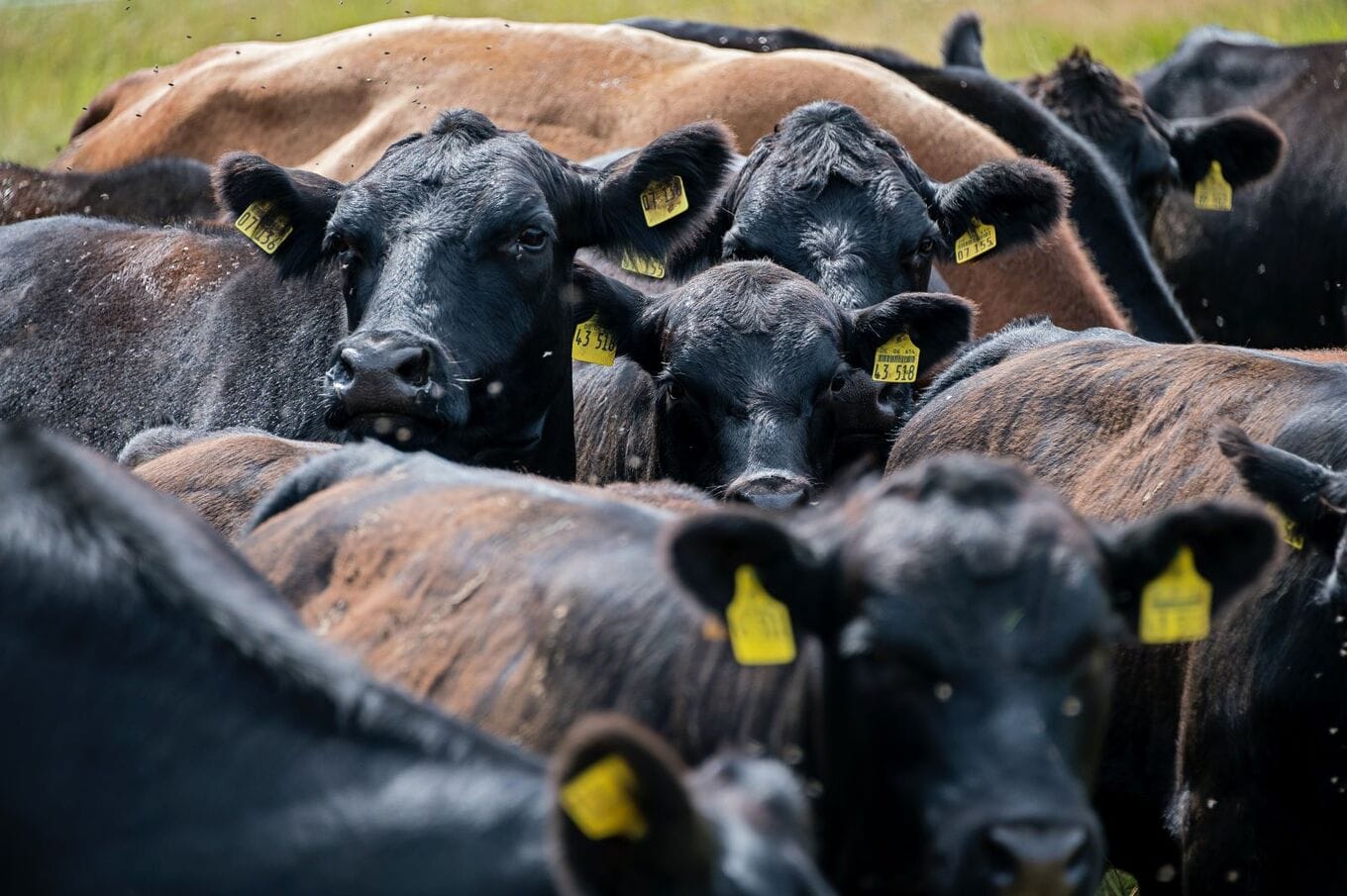.jpg)
A plant-based diet will help you and the planet live much longer, according to two new studies published by research teams from different parts of the world.
A groundbreaking study from the University of Oxford suggests that adopting a vegan diet could significantly reduce the environmental impact of our food choices. This study, published in Nature Food, is considered one of the most exhaustive analyses of its kind, connecting dietary patterns with the environmental impacts of food production.

The research, led by the Livestock, Environment, and People (LEAP) project, found that diets rich in plant-based foods reduced greenhouse gas emissions, land use, and water pollution by 75 percent compared to high meat-consuming diets. Notably, even a low-meat diet (containing 50 grams or less of meat per day) yielded approximately half the heat-trapping gas, water pollution, and land use as high-meat diets.
These findings were determined after examining the dietary habits of more than 55,000 individuals in the United Kingdom. The team linked this data with information from more than 38,000 farms across 119 countries to evaluate the environmental ramifications of their diets.
“Our dietary choices have a big impact on the planet,” Professor Peter Scarborough, the study’s lead author, said in a statement. “Cherry-picking data on high impact plant-based food or low impact meat can obscure the clear relationship between animal-based foods and the environment.”
In a parallel line of research, a team from Harvard T.H. Chan School of Public Health found that not only does a plant-based diet benefit the planet, but it could also extend our lifespan. In this study, researchers found that individuals following an environmentally sustainable diet were 25 percent less likely to die during a follow-up period of more than 30 years than those with less sustainable diets.
This research identified foods that are beneficial for both health and the environment—such as whole grains, fruits, non-starchy vegetables, nuts, and unsaturated oils. It also pointed out foods potentially detrimental to both, such as red and processed meat, and eggs.

The team formulated a novel Planetary Health Diet index (PHDI) that considers the environmental and health effects of various food types. Those in the highest quintile of the PHDI had a 25 percent lower risk of death from any cause compared to those in the lowest quintile.
“We proposed a new diet score that incorporates the best current scientific evidence of food effects on both health and the environment,” lead author Linh Bui, MPH, said in a statement.
“The results confirmed our hypothesis that a higher Planetary Health Diet score was associated with a lower risk of mortality,” Bui said.
Furthermore, higher PHDI scores corresponded with a 15 percent lower risk of death from cancer or cardiovascular diseases, a 20 percent lower risk of death from neurodegenerative diseases, and a staggering 50 percent lower risk of death from respiratory diseases
Despite these promising results, the researchers acknowledge the complexity of global dietary patterns and call for additional research to explore the variations in food cultures, food accessibility, and other barriers that might hinder the widespread adoption of a more sustainable diet.
“We hope that researchers can adapt this index to specific food cultures and validate how it is associated with chronic diseases and environmental impacts such as carbon footprint, water footprint, and land use in other populations,” Bui said.
Business as usual fuels climate crisis
Building on a growing body of research that has pointed to the same conclusions, the Oxford and Harvard studies mark a significant step forward in our understanding of the health and environmental implications of our dietary choices.
Another study released this month further illuminated how the climate crisis, which factory farming helped create, is affecting the animals exploited by the industry.

Led by Edward Narayan, PhD, Senior Lecturer of Animal Science at The University of Queensland, this study analyzed the “multi-faceted” impact of climate change on animal welfare. The study exposed the “cascading effects” across critical animal welfare domains, including nutrition, environment, behavior, physical health, and mental health.
It also warned about the vulnerability of animals to climate change impacts, specifically chickens and cows used for dairy, along with several species of wildlife. These animals face significant issues such as heat stress and reduced food quality due to climate change, affecting their overall health and productivity.
In addition to farmed animals, wildlife like African elephants and koalas, along with domestic animals such as cats and dogs, are also under threat from rising global temperatures and resource scarcity.
Taken together, these findings strongly suggest that embracing a plant-based diet is not only a powerful tool for reducing our environmental footprint but also a pathway toward greater longevity. Policymakers, health practitioners, and individuals are all equipped with compelling evidence to make more informed and sustainable dietary choices.
Close *Name * Email * Text Message |
D2 - 840 MAIN STREET E Milton, Ontario L9T0J4 Phone Number: +1 647-450-0300
------------
Branch 1: NO 62, Andarzgoo St., Tehran, Iran Phone Number: 0098 2122398500
Branch 2: NO 97, Pasdaran St., Tehran, Iran Phone Number: 0098 2122785500
☎ 647-450-0300 ☎
Info@arasgreen.com
Aras Green Restaurant will serve Persian cuisine, blending Middle Eastern and North American styles with high-quality, healthy ingredients and spices. We also offer delivery services.



.png)
.png)
.png)
.png)
.png)